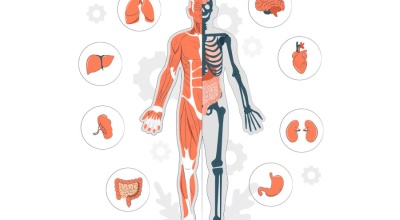The specific viral cause of illness cannot be determined solely on the basis of signs, symptoms, history, or current risk factors. The viral type must be verified by specific serologic testing. Because the clinical characteristics are similar for all types of acute viral hepatitis.
What is Viral Hepatitis?
Hepatitis means inflammation of the liver. The liver is a vital organ that processes nutrients, filters the blood, and fights infections. When the liver is inflamed or damaged, its function can be affected. Heavy alcohol use, toxins, some medications, and certain medical conditions can cause hepatitis. However, hepatitis is often caused by a virus. In the United States, the most common types of viral hepatitis are hepatitis A, hepatitis B, and hepatitis C.
ABCs of Hepatitis
Hepatitis A is a vaccine-preventable, communicable disease of the liver caused by the hepatitis A virus (HAV). It is usually transmitted person-to-person through the fecal-oral route or consumption of contaminated food or water. Hepatitis A is a self-limited disease that does not result in chronic infection. Most adults with hepatitis A have symptoms, including fatigue, low appetite, stomach pain, nausea, and jaundice, that usually resolve within 2 months of infection; most children less than 6 years of age do not have symptoms or have an unrecognized infection. Antibodies produced in response to hepatitis A infection last for life and protect against reinfection. The best way to prevent hepatitis A infection is to get vaccinated.
Hepatitis B is a liver infection caused by the Hepatitis B virus (HBV). Hepatitis B is transmitted when blood, semen, or another body fluid from a person infected with the Hepatitis B virus enters the body of someone who is not infected. This can happen through sexual contact; sharing needles, syringes, or other drug-injection equipment; or from mother to baby at birth. For some people, hepatitis B is an acute, or short-term, illness but for others, it can become a long-term, chronic infection. Risk for chronic infection is related to age at infection: approximately 90% of infected infants become chronically infected, compared with 2%–6% of adults. Chronic Hepatitis B can lead to serious health issues, like cirrhosis or liver cancer. The best way to prevent Hepatitis B is by getting vaccinated.
Hepatitis C is a liver infection caused by the Hepatitis C virus (HCV). Hepatitis C is a blood-borne virus. Today, most people become infected with the Hepatitis C virus by sharing needles or other equipment to inject drugs. For some people, hepatitis C is a short-term illness but for 70%–85% of people who become infected with Hepatitis C, it becomes a long-term, chronic infection. Chronic Hepatitis C is a serious disease than can result in long-term health problems, even death. The majority of infected persons might not be aware of their infection because they are not clinically ill. There is no vaccine for Hepatitis C. The best way to prevent Hepatitis C is by avoiding behaviors that can spread the disease, especially injecting drugs.
Hepatitis C: Why people born 1945-1965 should get tested
People born from 1945-1965 are 5x more likely to have Hepatitis C.
While anyone can get Hepatitis C, people born during these years are five times more likely to have Hepatitis C than other adults. That’s why CDC recommends everyone born from 1945-1965 get tested for Hepatitis C.
75% of people with Hepatitis C were born from 1945-1965
An estimated 2.4 million people are living with hepatitis C in the United States.
Hepatitis C can cause liver damage and liver failure.
Over time, chronic Hepatitis C can cause serious health problems including liver damage, cirrhosis, liver cancer and even death. In fact, Hepatitis C is a leading cause of liver cancer and the #1 cause of liver transplants.
Many people can get lifesaving care and treatment.
Knowing you have Hepatitis C can help you make important decisions about your health. Successful treatments can eliminate the virus from the body and prevent liver damage, cirrhosis, and even liver cancer.
Hepatitis C Overview
More About Hepatitic C
Hepatitis C is a serious liver disease that results from infection with the Hepatitis C virus. Hepatitis C has been called a silent epidemic because most people with Hepatitis C do not know they are infected.
While some people who get infected with Hepatitis C are able to clear, or get rid of, the virus, most people who get infected develop a chronic, or lifelong, infection. Over time, chronic Hepatitis C can lead to serious liver problems including liver damage, cirrhosis, liver failure, or liver cancer. But many people can benefit from available treatment options that can eliminate the virus from the body and prevent further liver damage.
Why should people born during 1945-1965 get tested for Hepatitis C?
In 2012, CDC started recommending Hepatitis C testing for everyone born from 1945 – 1965. While anyone can get Hepatitis C, up to 75% of adults infected with Hepatitis C were born from 1945 – 1965
Most people with Hepatitis C don’t know they are infected so getting tested is the only way to know.
- Baby boomers are five times more likely to have Hepatitis C than other adults.
- The longer people live with Hepatitis C undiagnosed and untreated, the more likely they are to develop serious, life-threatening liver disease.
- Liver disease, liver cancer, and deaths from Hepatitis C are on the rise.
- Getting tested can help people learn if they are infected and get them into lifesaving care and treatment.
Why do baby boomers have such high rates of Hepatitis C?
The reason that baby boomers have high rates of Hepatitis C is not completely understood. Most boomers are believed to have become infected in the 1970s and 1980s when rates of Hepatitis C were the highest.
Transmission
How do you get Hepatitis C?
Hepatitis C is usually spread when blood from a person infected with the Hepatitis C virus enters the body of someone who is not infected. This can happen through multiple ways.
Before widespread screening of the blood supply began in 1992, Hepatitis C was spread through blood transfusions and organ transplants. People with clotting problems who took blood products prior to 1987 could have been exposed to Hepatitis C. Sharing needles or other equipment to inject drugs was and is a very efficient way to transmit the virus. People have also become infected with the Hepatitis C virus from body piercing or tattoos that were done in prisons, homes, or in other unlicensed or informal facilities.
Although uncommon, outbreaks of Hepatitis C have occurred from poor infection control in health care settings. In rare cases, Hepatitis C may be sexually transmitted. Babies born to mothers with Hepatitis C can get infected during childbirth. Still, many people do not know how or when they were infected.
Hepatitis C is not spread by casual contact, kissing, hugging, sneezing, coughing, breastfeeding or sharing food, eating utensils or glasses.
Symptoms
Many people with chronic Hepatitis C do not have symptoms and do not know they are infected. People with chronic Hepatitis C can live for decades without symptoms or feeling sick.
When symptoms do appear, they often are a sign of advanced liver disease. Symptoms of Hepatitis C can include: fever, fatigue, loss of appetite, nausea, vomiting, abdominal pain, dark urine, grey-colored stools, joint pain and/or jaundice.
Information on Testing
The only way to know if someone has Hepatitis C is to get tested. Doctors use a blood test, called a Hepatitis C Antibody Test, to find out if a person has ever been infected with Hepatitis C. The Hepatitis C Antibody Test looks for antibodies to the Hepatitis C virus. Antibodies are chemicals released into the bloodstream when someone gets infected. The antibody test results will take anywhere from a few days to a few weeks to come back, although new Rapid Antibody Tests are available in some settings.
- A Non-reactive or a negative Hepatitis C antibody test result means that a person does not have Hepatitis C. However, if a person has been recently exposed to the Hepatitis C virus, he or she will need to be tested again.
- A Reactive or a positive Hepatitis C antibody test result means that Hepatitis C antibodies were found in the blood and a person has been infected with the Hepatitis C virus at some point in time.A reactive antibody test does not necessarily mean a person still has Hepatitis C. Once people have been infected, they will always have antibodies in their blood. This is true if even if they have cleared the Hepatitis C virus. A reactive antibody test requires an additional, follow-up test to determine if a person is currently infected with Hepatitis C.
Living with Chronic Hepatitis C
How is chronic Hepatitis C treated?
Medications, called antivirals, can be used to treat many people with chronic Hepatitis C. There are several medications available to treat chronic Hepatitis C, including new treatments that appear to be more effective and have fewer side effects than previous options. For current information on approved treatments for Hepatitis C, please visit the Food and Drug Administration (FDA)External.
However, not everyone needs or can benefit from treatment. It is important to be checked by a doctor experienced in treating chronic Hepatitis C. He or she can determine the most appropriate medical care. Decisions about starting treatment are based on many factors, such as the type of virus, the condition of the liver, and other health conditions. Whether or not to be treated or when to start treatment should be discussed with your doctor.
To protect your liver, you can:
- Ask your doctor before taking any prescription, over-the-counter medications, supplements or vitamins. For instance, some drugs, such as certain pain medications, can potentially damage the liver
- Avoid alcohol since it can increase the speed of liver damage
- Talk to your doctor about getting vaccinated against Hepatitis A and B
Use Condom the Right Way, Condom Size Calculator, Lubricant, Barebacking and Resources
Basic educational information with resources and videos are free to view, share, and download.
The Condom Size Calculator
Suggested Condom Size
The condom size chart is broken down to introduces the condom brand and name along with a brief description about each condom.
Due to the fact that every penis is different, one single comprehensive condom size chart seems impossible. Yet when it comes to condoms, size (and shape) is everything- for effective protection and pleasure.
The Condom Calculator
Quick Tip: if your penis girth is below 4.7 inches (119mm) check out the snugger fit section. Regular condoms will best suit you if your girth is between 4.7″–5.1″ (119-130mm). Guys with girth bigger than 5.1″ (130mm) should use a larger condom. Check out the condom calculator to get more accurate suggestions for your size. You can also read more about how to choose your size.
Why Condoms Break
There are several reasons why a condom would break
- Too old. Modern condom wrappers have a date after which the condom should not be used.
- Improper storage. Heat damages latex condoms, so they should not be kept in a hot place, such as a car glove compartment or wallet.
- Not enough lubrication. Additional lubrication is always needed for rectal sex. It may also be needed for vaginal sex. The lubricant should be water-soluble, such as KY jelly.
- The wrong kind of lubricant. Lubricants that contain oil -- such as Vaseline, baby oils, and vegetable oils -- should not be used with latex condoms since they weaken the rubber.
- Too small. Try a larger size.
- Partner too tight. Use an extra strength condom and more lubricant.
A condom may come off during sex because:
- Condom too large. Try a snug condom.
- Loss of erection. Remove your penis, holding on to the rolled edge of the condom, as soon as you begin to lose your erection.
Using a personal lubricant
Never use an oil-based lube with latex condoms (this includes, baby oil, coconut oil, etc.) or you run the risk of condom breakage!
Water-based lubes are slippery and may need to be reapplied. They are easy to clean up with water. Look for high-quality (body safe) choices that state they are petrochemical-free, glycerin-free and paraben-free.
- rinses off easily from skin and fabric
- cheaper and easier to find than silicone-based lube
Silicone-based lubes are slick and can be used in water (hot tubs, showers, lakes, swimming pools). They are less likely to need multiple applications (in comparison to water-based lubes). They generally require soap and water for clean-up. Use them sparingly and avoid getting them on surfaces you don’t want to slip on later.
- lasts longer than water-based lube
- best for anal sex
Flavored lubes
- usually a water-based lube with flavor added, often contains sugar
- best for oral sex, especially when using a condom
What's the best kind of condom?
Types of Condom
There are so many condoms out there, so many choices and so little time. There are condoms marketed and labeled as "ultrasensitive," and these are usually thinner and provide more warmth and direct contact. When you buy or choose condoms, look for the ones with the word "ultrasensitive." In addition, using water-based lubrication can increase the pleasure and decrease the risk of small tears or cuts that allow STDs and HIV entry into a partner.
There's a newish condom called Pleasure Plus that has a pouch near the head for larger and uncut penises. It also has ribs and lube on the pouch for extra sensation. On the Condomania web site can help you decide which to try.
Condomania also sell condom samplers so you can try a few and see which you like enough to buy more of.
Allergic to Latex Condoms?
Although a slight percentage (approximately 3%) of people are allergic to latex condoms Stop using latex rubbers and invest instead in polyurethane, tactylon or lambskin condoms. Keep in mind, however, that lambskin does not prevent the transmission of STDs.
Male Condom Use, Fact Sheets and Condom Shopping Guide
Condom Guide
Use this handy shopping guide as a reminder of what to look for when buying condoms and lubricants.
Always be sure to choose:
[X] Latex or polyurethane, including the female condom
[X] Disease prevention claim on package label
Also consider:
[ ] With lubricant
[ ] Separate lubricant (Select only water-based lubricants made for this purpose.)
Male Condom Use

Male Condom Use and Fact Sheets
The Right Way To Use A Male Condom
Condom Dos and Don’ts
- DO use a condom every time you have sex.
- DO put on a condom before having sex.
- DO read the package and check the expiration date.
- DO make sure there are no tears or defects.
- DO store condoms in a cool, dry place.
- DO use latex or polyurethane condoms.
- DO use water-based or silicone-based lubricant to prevent breakage.
- DON’T store condoms in your wallet as heat and friction can damage them.
- DON’T use nonoxynol-9 (a spermicide), as this can cause irritation.
- DON’T use oil-based products like baby oil, lotion, petroleum jelly, or cooking oil because they will cause the condom to break.
- DON’T use more than one condom at a time.
- DON’T reuse a condom.
How To Put On and Take Off a Male Condom
Carefully open and remove condom from wrapper.
Place condom on the head of the erect, hard penis. If uncircumcised, pull back the foreskin first.
Pinch air out of the tip of the condom.
Unroll condom all the way down the penis.
After sex but before pulling out, hold the condom at the base. Then pull out, while holding the condom in place.
The Female Condom and Facts
The Female Condom:
The female condom, like the male condom, is a barrier contraceptive made of latex or polyurethane. The condom has a ring on each end. The ring that is placed inside the vagina fits over the cervix, while the other ring, which is open, rests outside of the vagina and covers the vulva. The female condom is sold over-the-counter.
The Female Health Company - The Female Health Company is the only developer and manufacturer of the female condom. Their website provides information regarding the product, strategic introduction of the female condom, resources and other information.
The FC2 female condom, the second generation female condom, is now available in the United States. The FC2 female condom is a strong, thin, nitrile sheath that is about 6.5 inches long (about the same length as a male condom) with a flexible "ring" at each end. It is inserted into the vagina prior to sexual intercourse and provides protection against both pregnancy and sexually transmitted diseases (STDs) including HIV. The inner ring aids insertion and helps keep the female condom in place during intercourse while the softer outer ring remains outside the vagina.
- Provides both men and women with an additional choice to prevent unintended pregnancies and protect themselves from STDs including HIV.
- Is the only female-initiated barrier method alternative to the male condom.
- Forms a barrier between the penis and the vagina, cervix and external genitalia, thereby providing additional protection.
- Is made from nitrile, a synthetic latex, and causes no allergic reactions and, unlike latex, may be used with both oil and water based lubricants.
- Can be inserted up to 8 hours before intercourse so it will not interrupt sexual spontaneity. It is not dependent on the male erection and does not require immediate withdrawal after ejaculation.
- Conducts/retains heat, so sexual intercourse can feel natural.
- Is not tight or constricting
The female condom is not difficult to use, but it may take practice to become comfortable using it. It is recommended that women practice inserting and removing the female condom, before using it for the first time during sexual intercourse. The female condom should not be used together with a male condom.
Female Condom Use
The Right Way To Use A Female Condom

Female Condom Dos and Don’ts
- DO use a female condom from start to finish, every time you have vaginal sex.*
- DO read the condom package insert and check the expiration date.
- DO make sure there are no tears or defects.
- DO use lubricant to help prevent the condom from slipping and tearing.
- DO store female condoms in a cool, dry place.
*Female condoms can also be used for anal sex.
- DON’T use a male condom with a female condom, as this can cause tearing.
- DON’T reuse a female condom.
- DON’T flush female condoms as they may clog the toilet.
How To Insert and Remove a Female Condom
Carefully open and remove female condom from package to prevent tearing.
The thick, inner ring with closed end is used for placing in the vagina and holds condom in place. The thin, outer ring remains outside of body, covering vaginal opening.
Find a comfortable position. While holding outside of condom at closed end, squeeze sides of inner ring together with your thumb and forefinger and insert into vagina. It is similar to inserting a tampon.
Using your finger, push inner ring as far up as it will go until it rests against cervix. The condom will expand naturally and you may not feel it.
Be sure condom is not twisted. The thin, outer ring should remain outside vagina.
Guide partner’s penis into opening of female condom. Stop intercourse if you feel penis slip between condom and walls of vagina or if outer ring is pushed into vagina.
To remove, gently twist outer ring and pull female condom out of vagina.
Throw away female condom in trash after using it one time. Do not reuse.
Semen Leakage
About Semen Leakage
- Semen leakage is caused by a weakening of the parasympathetic sexual nerve that keeps the ejaculation valve closed and maintains the erection. If not taken care of, it's possible that maintaining an erection can become a problem as well.
- To hold the erection up and tighten the ejaculation valve, you need a basic resting potential in the parasympathetic sexual motoring nerve and a continuous burst of testosterone to charge the nerves during sex. Testicular stimulation during intercourse can help the testosterone burst, and increase penile power and combat seminal leakage that often contributes to premature ejaculation (not to mention potential embarrassment in front of a partner).
- There are herbal supplements that can help you achieve the quality sex you want by providing an increase in testosterone as fuel. Good luck.
Withdrawal (Pull Out Method)
What is pulling out (withdrawal)?
Pulling out (also known as withdrawal) is a way to prevent pregnancy by keeping semen away from the vagina. Withdrawal works best when you use another birth control method with it, like a condom.
What’s the withdrawal method (pulling out)?
Pulling out is exactly what it sounds like: pulling the penis out of the vagina before ejaculation (aka cumming). If semen (cum) gets in your vagina, you can get pregnant. So ejaculating away from a vulva or vagina prevents pregnancy. But you have to be sure to pull out before any semen comes out, every single time you have vaginal sex, in order for it to work.
The truth about barebacking
About Barebacking
Barebacking usually refers to a conscious and deliberate choice to forgo condoms.
On barebacking, my boyfriend (top) has had three negative tests over nine months and I have had one. Are we pretty well OK? If you mean negative HIV tests, then it is unlikely that either of you are HIV infected, but to be sure, both partners need to be monogamous and you should get another test. The risk of barebacking, however, goes beyond HIV. People can transmit herpes, gonorrhea, syphilis and chlamydia to each other, too -- so both partners should also be tested and treated, if infected, for these infections. There should be testing of the urine and rectum for gonorrhea and chlamydia. Both of these are treatable infections and can lay dormant in your body without symptoms. Ask your doctor for a full spectrum of STD tests for the different places you have sex -- throat, penis and/or rectum. If either of you are barebacking with each other and having other partners, it's important to have safe sex with the other partners so you don't bring anything home.
Heterosexual bareback
The term bareback sex is used less frequently among heterosexuals. A survey by the New York City Department of Health and Mental Hygiene found that heterosexual women are more likely to bareback when engaging in anal sex than homosexual and bisexual men are. Heterosexual bareback sex, as opposed to sex with condoms, poses an increased risk of STIs whether vaginally or anally, and an increased risk of pregnancy via penetration of the vagina.
Bareback (sex) Wikipedia Read More
The Gift (2003 film) 62 minutes
DOCUMENTS THE PHENOMENON OF DELIBERATE HIV INFECTION
Documentary (English)
Louise Hogarth
Dream Out Loud Productions
Gift Giver: HIV positive man who gives The Gift of HIV infection.
Bug CHaser: HIV negative man who deliberately becomes infected with HIV.
Barebacking: Deliberate high risk sex with disregard for HIV infection.
The Gift documents the phenomenon of deliberate HIV infection. The film follows the stories of two "bug chasers" who sought out "the gift" of HIV infection. Also interviewed are AIDS activist and author, Walt Odets, PhD, and HIV+ and HIV- men. The film explores the normalization and glamorization of HIV/AIDS and discusses the isolation and division caused by HIV status in the gay community.
Doug, a central character of the film is a bright, articulate young man who moved from the Midwest to San Francisco in search of a gay community. He became a bug chaser and actively sought The Gift of HIV infection.
Best Documentary Newfest Lesbian & Gay (New York City) Best Documentary - Santa Barbara Lesbian & Gay Film Best Documentary and Best Feature Film (2nd place) Audience Award Q! Film Festival, Jakarta International Film Festival (Indonesia) Louise Hogarth, one of twenty Iconoclasts, picked by Seed Magazine - A Portfolio of the Icons & Iconoclasts who Redefined Science in 2003.
Subject
Syphilis | congenital syphilis prevention | chlamydia | gonorrhea | congenital gonorrhea prevention | STD | STI | sexually transmitted infection | sexually transmitted disease | testing | infant | infection | Medicine | Health | Cure | Pain | Doctor | Antibiotic | symptoms | signs | genitals | mouth | treatment | sore throat | lymph nodes | oral sex | vaginal sex | anal sex | Sexually Transmitted Disease
It's important to use condoms (rubbers, prophylactics) to help reduce the spread of sexually transmitted diseases (STDs). These diseases include the Human Immunodeficiency Virus, or HIV (the virus that causes AIDS), chlamydia, genital herpes, genital warts, gonorrhea, hepatitis B, and syphilis. You can get them through having sex -- vaginal, anal, or oral.
Public Downloads
All items are free to view, share, and download.
Files and Videos
Free HIV/AIDS Videos in Many Languages
We prevent the spread of HIV and help those affected by making HIV/AIDS prevention education videos in many languages available for free. You can stream the videos from YouTube or download higher quality versions from the Internet Archive under the Creative Commons "Attribution - Non-Commercial - No Derivatives" license.
Want a DVD? Order HIV/AIDS DVDs with your credit card. NGOs in the developing world that cannot afford to purchase a DVD can apply for free HIV/AIDS DVDs while supplies last! All our DVDs are freely copiable. You can also sign up to know when new videos or DVDs become available.
You can help fight HIV! Follow AIDSvideos on Twitter. Like AIDSvideos on Facebook. Subscribe to the AIDSvideos YouTube channel. Join the AIDSvideos.org monthly email list. Volunteer to translate scripts into your own language. Make a tax-deductible donation to Global Lifeworks, which is a 501(c)(3) not-for-profit, to support script translation and filming.
The content is free of known copyright restrictions under U.S. copyright law. ![]()


















